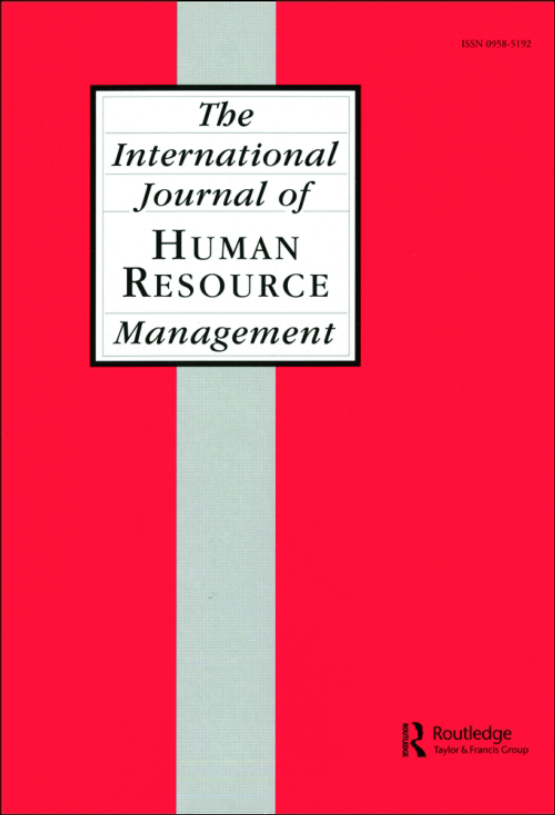Submit a Manuscript to the Journal
The International Journal of Human Resource Management
For a Special Issue on
The Institutional Fragility of Inclusion in Contemporary HRM Systems
Manuscript deadline

Special Issue Editor(s)
Professor Benjamin Laker,
Henley Business School, University of Reading
Benjamin.laker@henley.ac.uk
Professor Sven Horak,
St. John's University, New York
horaks@stjohns.edu
Professor Toyin Ajibade Adisa,
Royal Docks School of Business and Law, University of East London
t.adisa@uel.ac.uk
Dr. Fulya Acikgoz,
University of Sussex Business School, University of Sussex
F.Acikgoz@sussex.ac.uk
The Institutional Fragility of Inclusion in Contemporary HRM Systems
Inclusion has become a defining aspiration in modern human resource management. It is embedded in recruitment policies, leadership development strategies, employee engagement programmes, and organisational values. Yet, the institutional standing of inclusion is increasingly precarious. Across sectors and geographies, political retrenchment, economic turbulence, organisational ambivalence, and cultural contestation have converged to destabilise the norms and mechanisms that once sustained inclusive HRM.
This special issue examines the institutional fragility of inclusion—a condition in which inclusion is publicly endorsed but inconsistently enacted, weakly governed, or symbolically maintained in the absence of substantive commitment. In this context, we ask: What becomes of workplace inclusion when its institutional scaffolding weakens, but identity difference endures—embodied, politicised, and inescapable?
We invite theoretical, empirical, and methodological contributions that investigate how identity is constructed, contested, and regulated through HRM systems under conditions of institutional uncertainty. We encourage authors to move beyond static, categorical approaches to identity and instead theorise inclusion as a dynamic process shaped by power, legitimacy, and resistance. This includes examining how HRM practices—such as recruitment, development, performance management, and reward—reify dominant norms, marginalise difference, or function as sites of identity negotiation and contestation.
Contributions grounded in intersectionality and social identity theory are especially welcome, as are those drawing on critical race, feminist, or postcolonial perspectives. We particularly encourage comparative and globally informed studies that examine how inclusion is refracted through diverse institutional logics, legal regimes, and cultural contexts.
Topics of Interest
This special issue invites contributions that critically examine how HRM systems operate as sites of identity regulation, boundary-making, and institutionalised meaning-making, particularly under conditions of institutional fragility. Submissions may address (but are not limited to) the following themes:
-
Organisational responses to the erosion or contestation of inclusion mandates
-
Identity construction, negotiation, and resistance within HRM systems
-
Symbolic inclusion vs substantive change in HRM practice and policy
-
How performance systems, leadership pipelines, or “culture fit” criteria embed normative assumptions about who belongs
-
Comparative and global analyses of inclusion across varied institutional, legal, and cultural settings
-
HRM as a mechanism of voice suppression, identity masking, or strategic silence
-
The effects of intersectional identity configurations (e.g. gender × race × class) on access to opportunity, recognition, and legitimacy in HRM
-
How informal networks and shadow structures sustain or subvert inclusion efforts
-
Experiences of inclusion and exclusion when organisations retreat from formal DEI commitments
-
Institutional logics, power asymmetries, and the politics of belonging in HRM systems
-
Decolonial or Indigenous critiques of Western-centric inclusion frameworks in global HRM
We especially welcome contributions that:
-
Engage with critical, feminist, or postcolonial theoretical lenses
-
Challenge static, additive models of identity in favour of situated, relational, and processual approaches
-
Explore identity as both an object of regulation and a site of resistance
-
Provide empirical insight into how inclusion is interpreted, enacted, or undermined in non-Western or underrepresented contexts
Submission Instructions
Manuscripts should generally not exceed 10,000 words, including references, tables, and figures. Authors are encouraged to adhere closely to this limit to ensure consistency across contributions.
This special issue welcomes:
- Empirical papers (qualitative, quantitative, or mixed-method)
- Theoretical or conceptual papers
- Critical literature reviews or historically informed analyses
- Comparative or multi-level studies exploring institutional fragility across sectors, countries, or organisational levels
All submissions must follow the formatting and style guidelines provided by The International Journal of Human Resource Management.

